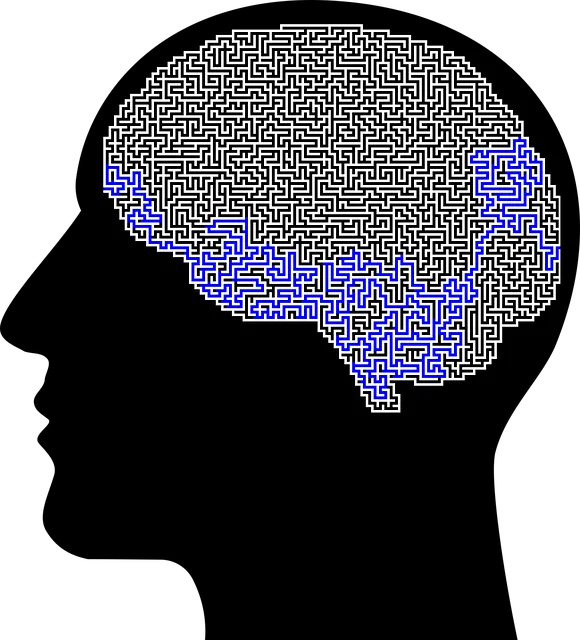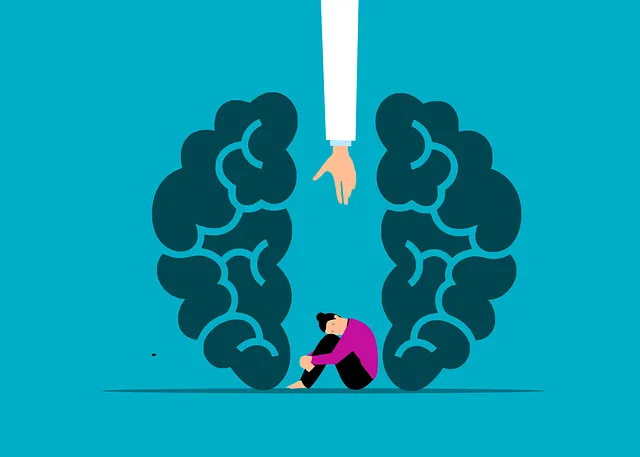Lone Tree Kaiser Permanente is revolutionizing local mental healthcare with a multifaceted approach that prioritizes Cultural Sensitivity, Social Skills Training, and self-awareness exercises. They leverage AI algorithms and online tools for accurate diagnoses, offer holistic care models emphasizing self-care and conflict resolution, and provide advanced training to healthcare professionals. Their goal is to enhance mental health coverage with personalized, effective treatments, reducing stigma and improving patient outcomes through precise diagnoses and tailored services.
Mental illness diagnosis accuracy is a critical aspect of patient care, especially with rising mental health concerns. This article explores efforts to enhance diagnostic precision, focusing on innovative strategies employed by organizations like Lone Tree Kaiser Permanente. We delve into their unique approach, which combines advanced tools and comprehensive training for healthcare professionals. By improving diagnosis accuracy, particularly under Lone Tree Kaiser Permanente’s mental health coverage, we can ensure more effective treatment plans, better patient outcomes, and reduced stigma.
- Understanding the Challenges of Mental Illness Diagnosis
- Lone Tree Kaiser Permanente's Approach to Enhancing Accuracy
- Innovative Tools and Techniques for Improved Assessment
- Training and Education: Empowering Healthcare Professionals
- The Impact and Benefits of Accurate Diagnoses
Understanding the Challenges of Mental Illness Diagnosis

Diagnosing mental illnesses accurately is a complex task due to their multifaceted nature and often subtle symptoms. The human mind is intricate, and mental health conditions can manifest differently in each individual, making diagnosis a challenging process. Many factors contribute to this complexity, including cultural influences, personal experiences, and comorbidities, which can mask or complicate the presentation of a primary disorder. For instance, a patient’s unique life circumstances might play a role in how they express their symptoms, leading to misdiagnosis or delayed treatment.
Lone Tree Kaiser Permanente’s mental health coverage recognizes these challenges and strives to enhance diagnosis accuracy by promoting Mental Health Awareness and implementing programs like Mind Over Matter Principles. Through educational initiatives and tailored support, they aim to empower both patients and healthcare providers. By investing in Mental Health Education Programs Design, Kaiser Permanente Lone Tree seeks to ensure that diagnosis and treatment are comprehensive, respectful of individual differences, and responsive to the evolving needs of its diverse patient population.
Lone Tree Kaiser Permanente's Approach to Enhancing Accuracy

Lone Tree Kaiser Permanente is making significant strides in improving mental illness diagnosis accuracy through a multifaceted approach. They prioritize Cultural Sensitivity in Mental Healthcare Practice, recognizing that understanding cultural nuances is key to effective assessment and treatment. By integrating this sensitivity into their practices, they ensure that every patient receives care tailored to their unique background and experiences.
Furthermore, the organization emphasizes the importance of Social Skills Training and Self-Awareness Exercises for both patients and healthcare providers. These initiatives aim to foster a deeper understanding of emotional cues, improve communication, and enhance empathy—all crucial elements for precise mental health assessments. Through these comprehensive efforts, Lone Tree Kaiser Permanente is committed to delivering higher quality, more personalized mental health coverage to their community.
Innovative Tools and Techniques for Improved Assessment

In recent years, mental health professionals at Lone Tree Kaiser Permanente have been at the forefront of revolutionizing assessment techniques. They’ve adopted innovative tools and techniques that go beyond traditional methods to ensure more accurate diagnoses. These advancements include sophisticated online assessments that can identify subtle changes in language and behavior patterns, providing a deeper understanding of patients’ experiences. Additionally, they utilize artificial intelligence (AI) algorithms to analyze vast amounts of data, uncovering trends and correlations that aid in personalized treatment planning.
Beyond technological enhancements, Lone Tree Kaiser Permanente emphasizes holistic approaches to mental well-being. Encouraging the development of self-care routines and inner strength is an integral part of their care model. They also provide training on conflict resolution techniques, empowering patients to navigate challenging situations with resilience and clarity. These multifaceted efforts contribute to improved mental health coverage and outcomes for their clients.
Training and Education: Empowering Healthcare Professionals

Training and education play a pivotal role in enhancing mental illness diagnosis accuracy. Healthcare professionals at Lone Tree Kaiser Permanente are receiving advanced training to better understand the nuances of mental health conditions. This includes learning about various therapeutic approaches, such as Mindfulness Meditation and Stress Reduction Methods, which not only aid in diagnosis but also in providing more effective treatment plans. By empowering healthcare providers with knowledge and skills, the organization aims to reduce the stigma associated with mental illness (Mental Illness Stigma Reduction Efforts) and improve patient outcomes.
Through continuous education, professionals are equipped to recognize subtle symptoms and differentiate between similar conditions. This specialized training encourages a holistic approach, considering not just the diagnosis but also the unique needs and challenges of each individual. As a result, patients receive more personalized care, leading to better recovery rates and improved quality of life.
The Impact and Benefits of Accurate Diagnoses

Accurate mental illness diagnoses are paramount for several reasons. Firstly, they enable tailored treatment plans that address specific conditions effectively. This precision improves patient outcomes significantly, leading to better quality of life and increased functionality. Accurate diagnoses also reduce stigma associated with mental health issues, fostering a more supportive environment where individuals feel comfortable seeking help without fear of judgment.
Additionally, precise mental health coverage, like that offered by Lone Tree Kaiser Permanente, becomes more meaningful when diagnoses are accurate. This ensures patients receive the appropriate services and resources under their insurance plans. Moreover, it paves the way for advocacy efforts (Mental Health Policy Analysis and Advocacy) pushing for better policies and increased funding for mental healthcare. Furthermore, promoting self-care routine development and stress management workshops (Self-Care Routine Development for Better Mental Health, Stress Management Workshops Organization) becomes more effective when individuals understand their unique needs following accurate diagnoses.
Mental illness diagnosis accuracy is a multifaceted challenge, but with innovative tools, enhanced training, and dedicated efforts like those exemplified by Lone Tree Kaiser Permanente, significant improvements are achievable. By leveraging advanced assessment techniques and empowering healthcare professionals through education, we can ensure more accurate diagnoses, leading to better treatment outcomes and improved mental health coverage for all. These efforts not only benefit individuals seeking care but also contribute to a healthier, more supportive society.






